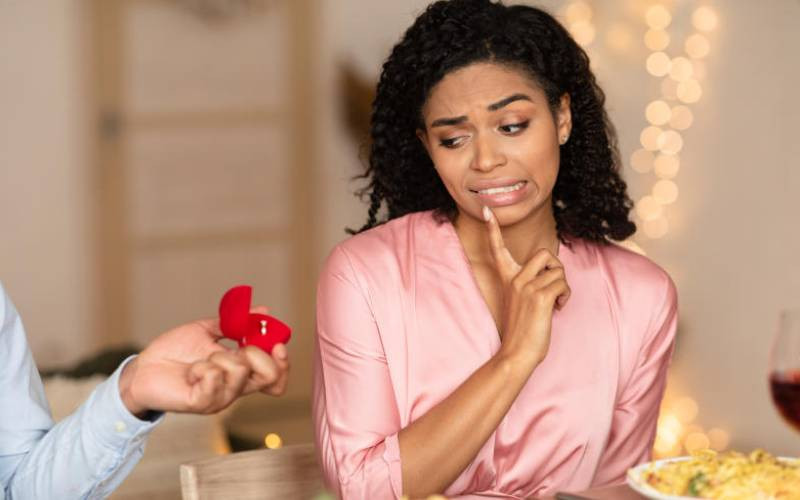
Reaching a certain age can feel like a countdown, especially when it comes to marriage. The pressure to get married can come from all directions: well-meaning family members, enthusiastic friends and even subtle societal expectations. It’s an age-old tale: your older relatives talk about getting married and having children at your age, implying that you’re “growing old” and might miss your chance.
Conversations can escalate to surprising offers, such as raising a grandchild if you “just have a baby and take it home”, which is a stark contrast to the stricter warnings of the past.
Even casual hangouts with friends can quickly become uncomfortable. When someone excitedly shares their wedding plans, their joy can turn into pointed questions about your intentions. Suddenly, you might find yourself feeling like an ‘overgrown, ancient, hunchbacked, toothless dame’, simply for not conforming to a perceived timeline.
So, what is the right age for a woman to get married? It’s whenever you’re ready. There are no set figures. And if you don’t want to, that’s perfectly fine, too. There are many valid reasons why some women choose to wait or not to marry at all. These include career aspirations, unresolved trauma, personal perspective, mental health considerations, financial stability, health concerns or simply the desire for independence.
Everyone is entitled to their opinion on this matter. However, a woman truly needs to be prepared for marriage in terms of her psychology, finances, mental health, social life, and even her physical health. This union is incredibly intimate, intense and demanding, and at its core, very serious.
Sadly, many women give in to societal pressure and end up marrying for the wrong reasons. Driven by a need to get married quickly, they might accept the first seemingly serious proposal, even if the person doesn’t match their preferences.
Some even resort to extreme measures, such as becoming pregnant on purpose, if that still works. In their eyes, the end justifies the means: a grand wedding, children, a wedding ring, the prefix ‘Mrs,’ and a new surname.
This is often seen as a tremendous achievement, bringing higher status and newfound respect. However, only the couple and their children truly know what happens behind closed matrimonial doors.
- Signs you are in a loveless marriage and when to walk away
- Ten types of content creators in Kenya
- Balance of power is critical for a healthy relationship
- Should men have a skincare routine?
Keep Reading
Unmarried women, on the other hand, often face disapproval from society. If you reach 30 without a partner, you can become the subject of gossip among the village elders. There must be ‘something wrong’ with you; you must be very sad and lonely, probably crying on your pillow every night. You’re seen as having failed the womenfolk as a whole, and your mother as having ‘raised you wrongly’.
Society often judges a woman’s “completeness” by her ability to secure and keep a man and raise a family. Girls are often raised to be “wives” and “mothers” first and foremost, with everything else being secondary.
Although “women’s empowerment” is a popular slogan, its roots are still shallow in 21st-century African society. Undoing centuries of gender stereotyping and profiling will take decades, and, to be honest, we’ve only just begun the journey.
This isn’t to say that marriage is a bad thing – please don’t misunderstand. It works for many people, and many genuinely find their “soulmate” and achieve a real-life “happily ever after”.
Eve Waruingi is a counselling psychologist.
 The Standard Group Plc is a multi-media organization with investments in media platforms spanning newspaper print
operations, television, radio broadcasting, digital and online services. The Standard Group is recognized as a
leading multi-media house in Kenya with a key influence in matters of national and international interest.
The Standard Group Plc is a multi-media organization with investments in media platforms spanning newspaper print
operations, television, radio broadcasting, digital and online services. The Standard Group is recognized as a
leading multi-media house in Kenya with a key influence in matters of national and international interest.










